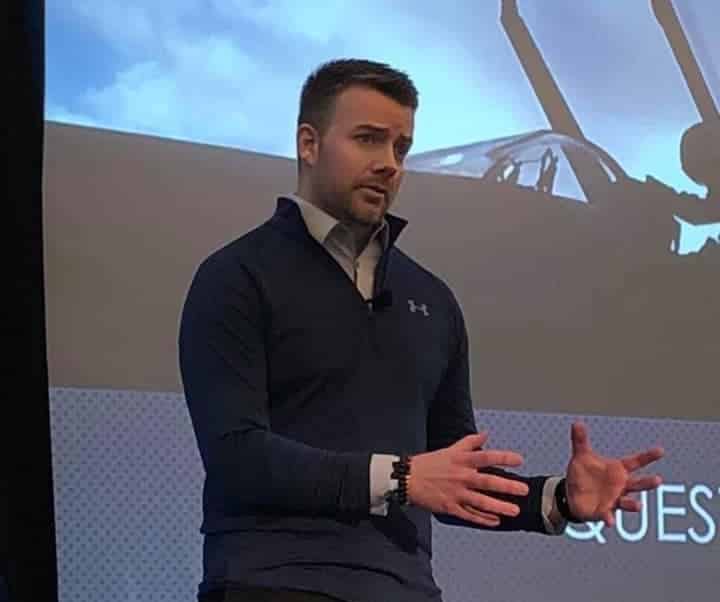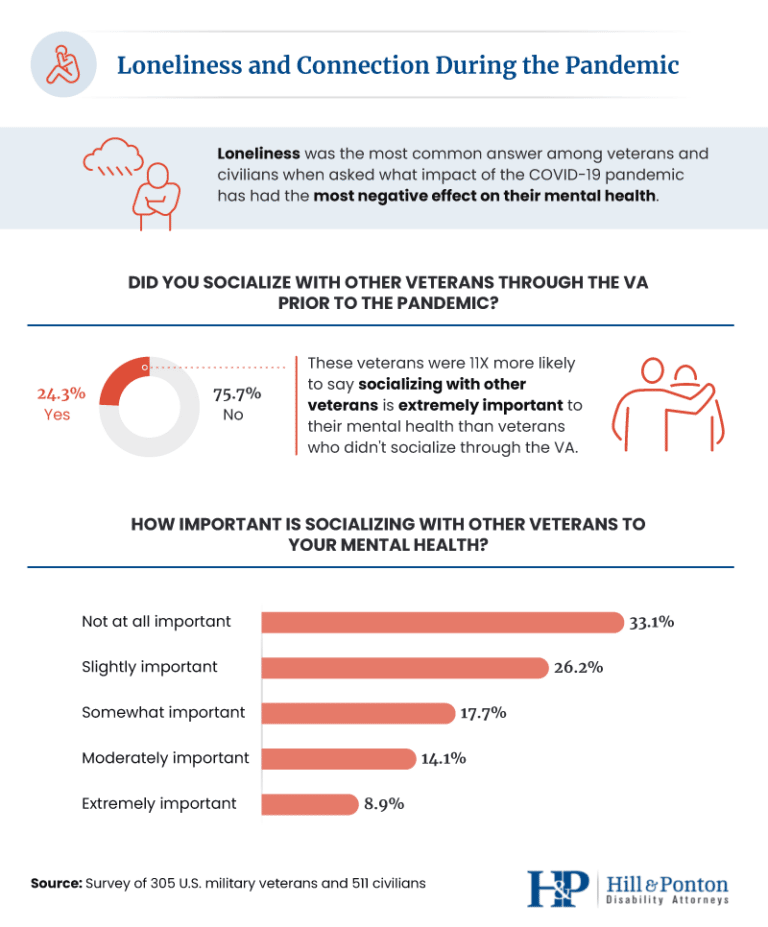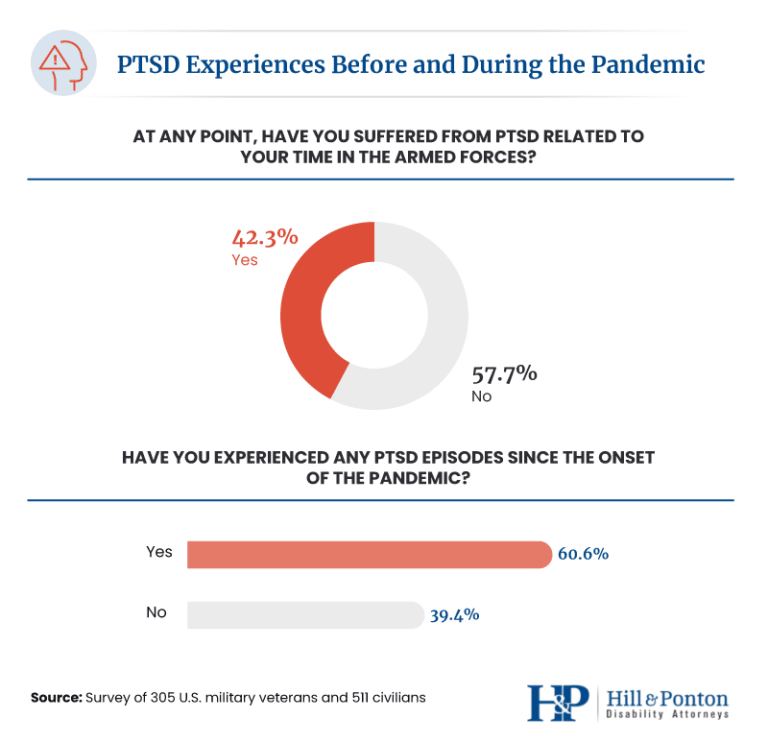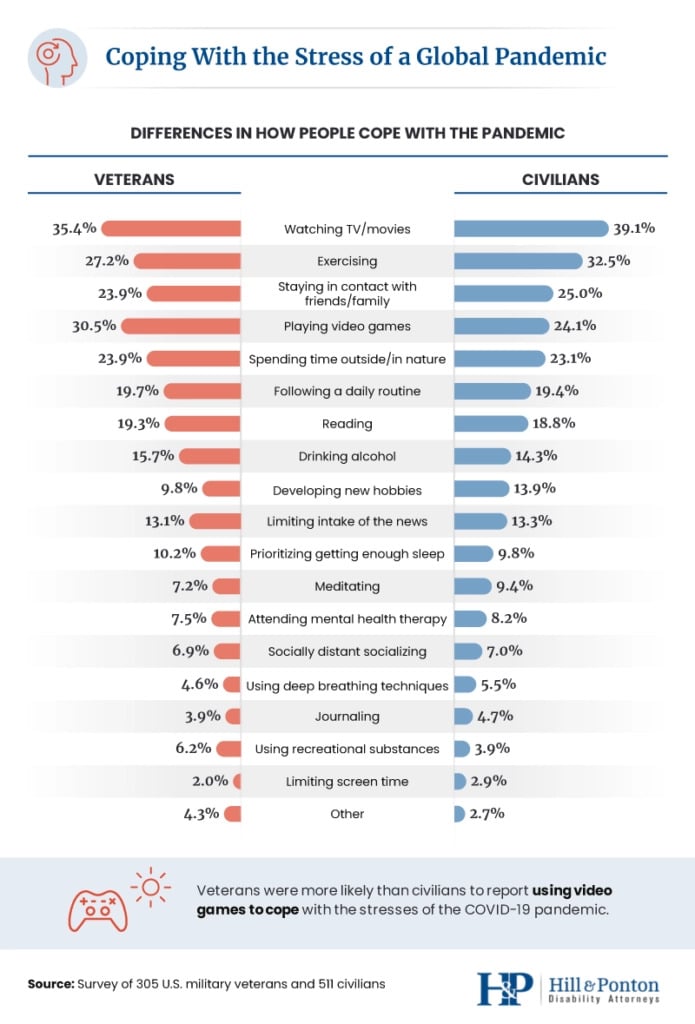In February of 2020, I boarded what would be my last “normal” flight.
Traveling from Detroit to Puerto Rico, I gave a speech to the incredible people at the Maple Flooring Manufacturers Association about why hiring veterans is good for business.

Back then, on the eve of the global Coronavirus pandemic, we had no idea how disrupted our lives were about to become. Sure, there were one-off news stories about a new virus ravaging Wuhan, China, but it would be two more months before we would confront the full weight of what we now faced.
Then, people started getting sick.
By April, nations sealed borders, sports teams canceled seasons, schools closed and employees had gone home; some of them for the last time.
While everyone was focused on the physical symptoms of COVID-19, feelings of loneliness, anxiety and depression skyrocketed.
Now, thanks to new data by VA Disability law firm Hill & Ponton, we have a clearer picture of how the pandemic has affected some veterans’ mental health.
Loneliness and Connection During the Pandemic

Courtesy Hill & Ponton, Disability Attorneys.
Loneliness was the most common answer among veterans when asked which aspect of the pandemic had the most negative effect on their mental health.
However, most veterans didn’t see the value in socializing with other veterans – 33.1% of them believed it was not important at all, and 26.2% thought it was slightly important. The remaining 31.7% either felt it was somewhat (17.7%), moderately (14.1%) or extremely important (8.9%).
Regarding PTSD, 42.3% of veteran respondents said they had suffered from some form of it in relation to their time in active duty. The pandemic increased the frequency of PTSD episodes among veterans who suffer from it, as 60.6% of them had experienced an incident due to COVID-19.

Courtesy Hill & Ponton, Disability Attorneys.
According to Hill & Ponton, the pandemic can specifically trigger PTSD for a number of reasons: People generally feel more unsafe, and these concerns can be more intense for them than others. Their trauma can be triggered as well – for example, the narrative of fighting the pandemic as if it is a war may bring up many uncomfortable feelings and memories from someone’s time on duty.
To cope, the study compared leisure activities between veterans and civilians and the results are interesting.

Courtesy Hill & Ponton, Disability Attorneys.
To cope with the pandemic, both veterans and civilians used TV and movie watching as an outlet the most. Veterans, however, were more likely than civilians to play video games as a coping method (30.5% compared to 24.1%).
Veterans were also more likely to spend their time being outdoors, reading and limiting the intake of the news, which rarely has positive updates these days.
Interestingly, once the pandemic started, civilian mental health became noticeably poorer, but veterans seemed to remain more stable.
This is perhaps due to veterans’ unique ability to maintain composure and creativity under extreme pressure; a byproduct of their military service and one of the many reasons I give to companies about why they should hire veterans.
Still, the pandemic has been hard on all of us, veterans and civilians alike. Sometimes, the most courageous thing a person can do is seek help when they need it.
If you are experiencing a crisis or know a fellow veteran who is, please don’t hesitate to connect with the Veterans Crisis Line to reach caring, qualified responders with the Department of Veterans Affairs. Many of them are Veterans themselves. Or call 1-800-273-8255 to talk confidentially. Family members and friends are welcome as well.
Fourteen months into the global Coronavirus pandemic and there finally appears to be a beautiful, blinding light at the end of the tunnel. As of this writing, fully 26% of the U.S. population, or 85M people, have been fully vaccinated.
When we’ll return to “normal” is anyone’s guess. But it feels like the tide has turned in this ongoing war.

Comments are closed.